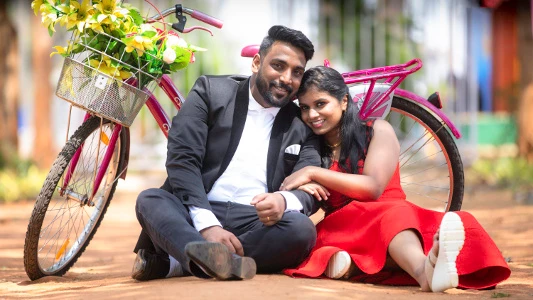The emotional toll of caring for a diabetic parent

Caring for a diabetic parent takes more than just managing their medications and monitoring their blood sugar levels – It’s an emotional rollercoaster.
As the primary caregiver for my diabetic father, I’ve gone through moments of frustration, fear, guilt and exhaustion. All while simply trying to ensure he lives a healthy life.
My father is 67 years old and a type 2 diabetic. Growing up in Mumbai, it’s clear to me how our culture, food and family expectations shaped his approach to diabetes. And no one prepared me for the mental and emotional burden that being a caregiver would bring. I had to learn that for myself.
Here is the story of my struggles, sacrifices and growth as I learned to handle and balance my father’s needs with mine.
Getting started
When my father was first diagnosed with diabetes, he didn’t take it seriously.
Like many Indian elders, he believed diabetes wasn’t a serious threat, just a minor illness. And his response to it was to start by telling me how my grandfather ate sweets every day and lived to 80 – So what was the big deal?
Trying to convince him to change his diet was exhausting. He resisted most of my efforts (like trying to switch white rice for brown and cutting down on his sweets), and every small change felt like a battle.
The impact it had on me
At first, I took it personally. I kept thinking, “Why can’t he see that I’m trying to help, and why does he have to fight against the very things that could save his life?”
As his caregiver, I constantly felt guilty that I wasn’t doing enough, wasn’t being strict enough, or was being too strict. Some nights I stayed awake wondering if I had pushed him too hard or asked too much. Other times I felt guilty for not doing more (particularly when I’d let him have that extra piece of mithai just to avoid an argument).
There were moments when I envied others who didn’t have these responsibilities. I saw my friends living carefree lives while I was counting my father’s carbs and checking his glucose readings.
I felt like I was losing myself in his care and that my personal life was taking a backseat – I couldn’t go out as often, couldn’t travel without worrying about him, and always had this hidden pressure of feeling like I had to be there for him whenever he needed me.
Beyond the daily struggles, the biggest weight I carried was fear – Fear of the possible complications of diabetes, but worse than that, the fear of losing my father.
As an educated person, I knew diabetes wasn’t just about blood sugar. That it could lead to heart disease, kidney failure, vision loss and nerve damage. And so every time he ignored my advice, I couldn’t help but imagine the worst-case scenario. I became obsessed with his health, reading medical journals, watching videos about diabetes care, and joining support groups. But no matter how much I learned, I couldn’t control everything by myself.
Reaching my breaking point
One night, around midnight, my father had a hypoglycemic episode. His blood sugar level was too low, and he felt dizzy, weak and confused.
I rushed to give him a glucose tablet to raise his blood sugar, and my hands were shaking the entire time.
As he recovered, I broke down in tears. It was then that it hit me – I wasn’t just a caregiver; I was his lifeline.
In an Indian family, caregiving isn’t seen simply as a responsibility but as an expectation. Relatives often told me how lucky I was to take care of my father, how I should be grateful, and that I shouldn’t be so stressed because taking care of elders is a blessing.
But they didn’t see the sacrifices behind the scenes. They weren’t the ones dealing with the emotional breakdowns, the sleepless nights, or the mental exhaustion of watching a loved one fail to take care of themselves.
I wanted to be a good daughter, but being in my early 20’s I also needed space for myself. And the guilt of prioritising my own life over my father’s health weighed heavily on me.
Eventually, I realised I couldn’t handle the weight of it all anymore without proper support and planning. So I started taking small steps to prioritise my own well-being.
First, I asked for help. I reached out to my extended family, making sure caregiving wasn’t just my responsibility.
I also started taking breaks, going for a short walk or an evening out with girl friends, and allowing myself time away from caregiving.
I allowed myself to let go of the guilt. I reminded myself that I was doing my best, and that was enough.
And most importantly, I accepted that I couldn’t force my father to change. I could only guide him. This was a big step for me, and it helped me a lot.
Final thoughts
Despite the hardships, caregiving taught me to be resilient, patient and compassionate. I’ve learned how to appreciate small victories, like getting my father to choose fruit over sweets or agreeing to go for a walk.
And while my father and I had disagreements, the experience has ultimately brought us together. We’ve bonded quickly in unexpected ways, over small things – Like sharing deep conversations during hospital visits, laughing over our struggles with sugar cravings, and supporting each other through the hard times.
Most importantly, I’ve come to appreciate acceptance and how vital it’s been in my father’s journey. It’s helped me understand that neither my father nor I are perfect, but as long as we try, and show up for each other, that’s enough.
Caring for a diabetic parent isn’t easy. It’s an emotional, mental and physical challenge that tests you every single day. But through all the struggles, I’ve realised that caregiving is more than just a responsibility. It’s a journey of love, sacrifice and acceptance.
Diabetes may have changed our lives, but it also taught me the true meaning of patience, resilience, and unconditional love.
And for that, I am grateful.
I’m also happy for my father – For embracing change as much as he can, for the steps we’ve taken together, and for the improvements they’ve brought to his health.
Looking for more stories like this?
Lisa is a type 2 diabetic. When she married, she quickly realised she’d have to work out how to manage her diabetes with her husband, and how he could help.
When Nirvaanika was first diagnosed with type 2 diabetes, she was only worried about her blood sugar. But then she started planning a family.
Lisa is a type 2 diabetic. When she married, she quickly realised she’d have to work out how to manage her diabetes with her husband, and how he could help.








